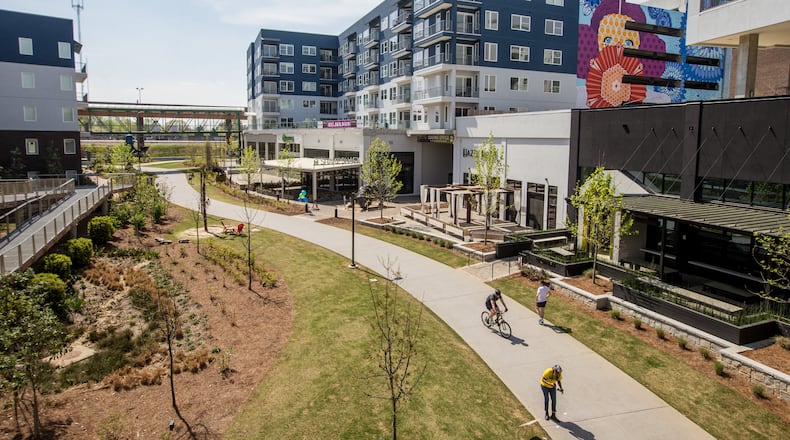A new city of Atlanta report found more than 360 apartment units have been priced at rates considered affordable as a result of a policy enacted three years ago, though a large number of lower-income residents are still not able to benefit from the initiative.
Atlanta officials passed a policy known as “inclusionary zoning” in 2018, mandating that any new rental project around the Beltline and in some Westside neighborhoods include a certain portion of affordable units.
Developers are given an option: They can either price 15% of their units as affordable for people who make below 80% of the area median income — equal to about $1,240 a month for a one-bedroom apartment. Or they can offer 10% of their units for people who make below 60% of the area median income — equal to about $930 for a one-bedroom, according to the city’s guidelines.
Of the 16 projects that have been subject to the inclusionary zoning rules, most chose the first option. About 360 total affordable units were created in the last three years: just over 300 units are targeted at renters who make 70 to 80% of the median income, while 60 were priced for the lower income threshold, the city’s report found.
In metro Atlanta, the area median income is $82,700 for a household of four. Metro Atlanta’s average monthly apartment rent is $1,500, according to RentCafé.
Developers also have an option to pay a fee to opt out of the pricing requirements, but so far none has chosen that path, according to the city’s report. The report also found that the number of new apartment developments in the city did not decrease after the policy went into effect.
The report recommended the city explore offering bonuses to developers that rent units targeted for people making 40% of the area median income.
“There are a large number of very low-income rent-burdened households who cannot afford” the rents considered affordable in the inclusionary zoning guidelines, the report stated.
In 2019, Mayor Keisha Lance Bottoms released a housing affordability plan that set a goal of creating or preserving 20,000 units of affordable housing by 2026.
“The conclusive result of this evaluation of the (inclusionary zoning) program’s first three years is that the program works,” the report states. “However, there is no question that more action is needed to achieve Mayor Bottoms’ vision of an equitable Atlanta for residents of all income levels.”
Housing advocates have pushed for the income limits to be lower, and developers are often urged to exceed the amount of affordable housing required by the law.
About the Author
The Latest
Featured



